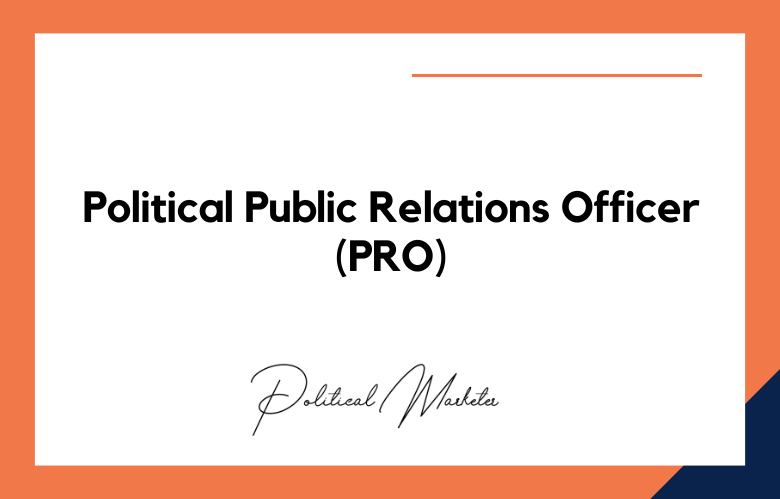Local political campaigns can be expensive and time-consuming, especially for small groups who need more money and resources to launch a large-scale campaign. This is where grassroots lobbying comes in. Grassroots lobbying empowers individuals to lobby for specific issues and outcomes in local politics by engaging with their elected officials and policymakers.
We will explore grassroots lobbying, why it’s essential for local political campaigns, and how you can get involved.
What is Grassroots Lobbying?
Grassroots lobbying is a form of lobbying that involves mobilizing ordinary citizens to lobby their elected officials and policymakers for specific issues or outcomes.
Unlike traditional lobbying, grassroots lobbying is accessible to anyone regardless of background or experience.
It enables individuals to personally voice their concerns and opinions to policymakers and can be an effective way for underrepresented groups to make their voices heard.
Why is Grassroots Lobbying Important for Local Political Campaigns?
Grassroots lobbying is essential for local political campaigns because it can help candidates and political leaders understand and prioritize the issues that matter most to their constituents.
By mobilizing ordinary citizens, grassroots lobbying can create momentum and support for critical political issues that the mainstream media might otherwise overlook.
It also gives candidates a more direct connection to their constituents and can help them build a robust and receptive base to their message.
How Can You Get Involved in Grassroots Lobbying
Getting involved in grassroots lobbying is easy and accessible to everyone. You can start by identifying the issues that matter most to you and then finding organizations or groups that align with your interests.
These groups can help you learn more about the issues and provide resources to help you get involved.
Social media platforms like Twitter and Facebook are great for connecting with like-minded individuals and sharing information about political issues.
If you’re interested in directly lobbying your elected officials, you can schedule a meeting with them or attend public meetings or events where they speak.
During these meetings, it’s essential to be prepared with specific talking points and be respectful and courteous when engaging with elected officials. Remember that elected officials work for their constituents and are often receptive to hearing their concerns.
Understanding Grassroots Lobbying for Local Political Campaigns
As local elections approach, politicians and their campaign managers scramble to gain support from the community.
One way to accomplish this is through grassroots lobbying, a common practice in political campaigns that allows citizens to voice their opinions and influence political decisions.
But what exactly is grassroots lobbying? I will examine this topic closely and explore how this tactic can benefit local political campaigns.
Grassroots lobbying is a form of political advocacy that occurs at the local level. This kind of lobbying occurs when individuals or organizations persuade policymakers about an issue from the ground up.
The objective is usually to get a particular decision-maker to adopt a policy idea or oppose a proposal under consideration.
In many cases, the effort is focused on gaining support for a candidate running for a political office. Effective grassroots lobbying campaigns typically involve organizing such as protests, petitions, and letter-writing campaigns.
Grassroots Lobbying: The Battle for Local Political Campaigns
Lobbying has always been a powerful tool in politics, allowing interest groups and constituents to express their views and influence decision-making at different levels of government.
However, in local political campaigns, grassroots lobbying emerges as a game-changer. But what exactly is a grassroots rally? And how does it work for local political campaigns?
I will explore the definition, strategies, benefits, and challenges of grassroots lobbying in local politics.
Grassroots lobbying emphasizes efforts, such as door-to-door canvassing, phone calls, letters, and social media campaigns, to reach out to many people and mobilize them to support a cause or influence their representatives.
Compared to traditional lobbying, which is often focused on individual representatives or key decision-makers, grassroots lobbying targets a broader audience of constituents, aiming to create a groundswell of public opinion that lawmakers cannot ignore.
The Impact of Grassroots Lobbying
Grassroots lobbying can significantly impact the outcome of a local campaign. By building a groundswell of local support and using citizen power, these movements can shift the political conversation, making the issue a top priority for elected officials and those seeking office.
In some cases, grassroots campaigns can become the deciding factor in election results.
As grassroots lobbying is often a bottom-up process, it can be more effective than traditional lobbying by professional lobbyists.
Grassroots lobbying creates a more significant impact at a fraction of the cost and can hold elected officials more accountable to their constituents.
Political Power to the People: Understanding Grassroots Lobbying in Local Political Campaigns
In a democracy, everyone has the right to be heard and to influence government policy. Grassroots lobbying is one way of doing this, where people from all walks of life get together to influence decisions made by politicians at the local level.
It allows ordinary citizens to participate in the political process and make their voices heard, even when access to power structures may be limited. We’ll discuss the concept of grassroots lobbying and its importance in local political campaigns.
Grassroots Lobbying Tips
Here are a few tips to keep in mind when engaging in grassroots lobbying:
-Be prepared with specific talking points and data to support your argument
-Be respectful and courteous when engaging with elected officials
-Stay informed about local and national political issues
-Use social media to connect with like-minded individuals and share information
Conclusion:
Grassroots lobbying is a powerful tool for individuals and small groups looking to make an impact in local political campaigns. It empowers ordinary citizens to personally engage with their elected officials and policymakers and can help bring important issues to the forefront of political debates.
By following the tips outlined, you can take an active role in shaping the political landscape of your community and make your voice heard.
Through various tactics, grassroots lobbying effectively engages people in the political process, creates change, and drives meaningful results.
Whether you want to initiate a local campaign advocating your cause or join a collective movement, understanding grassroots lobbying can offer valuable insights and tips to help make a difference in your community.
Call: +91 9848321284
Email: [email protected]
What is Grassroots Lobbying for Local Political Campaigns?: FAQs
What Is Grassroots Lobbying in Local Campaigns?
Grassroots lobbying involves mobilizing ordinary citizens to influence local government decisions, rather than directly contacting lawmakers.
How Does Grassroots Lobbying Differ from Direct Lobbying?
Unlike direct lobbying, which involves personal contact with lawmakers, grassroots lobbying encourages the public to advocate to their elected officials.
Why Is Grassroots Lobbying Important in Local Politics?
It empowers communities, increases civic participation, and puts pressure on local policymakers through collective public voice.
Who Can Participate in Grassroots Lobbying?
Anyone including individuals, community groups, nonprofits, activists, and students can take part in grassroots lobbying.
What Are Some Examples of Grassroots Lobbying Tactics?
Tactics include organizing rallies, social media campaigns, petition drives, town hall participation, and writing letters to representatives.
How Do Grassroots Campaigns Build Public Support?
They use storytelling, community organizing, local influencers, door-to-door engagement, and consistent messaging to rally support.
What Role Do Social Media Platforms Play in Grassroots Lobbying?
Social media amplifies messages, helps coordinate events, spreads awareness, and connects supporters quickly at low cost.
Can Grassroots Lobbying Influence Election Outcomes?
Yes, it can shift public opinion, increase voter turnout, and sway policymakers by showing broad community support for an issue.
What Are the Legal Guidelines for Grassroots Lobbying?
While generally legal, some regulations apply, especially for nonprofits, regarding how much time and resources can be devoted to lobbying.
What Is the Role of Local Influencers in Grassroots Efforts?
Local influencers lend credibility, expand reach, and help personalize the message to target communities.
How Can Grassroots Lobbying Be Measured for Effectiveness?
Metrics include public turnout, petition signatures, social media engagement, media coverage, and legislative outcomes.
What Makes a Grassroots Message Compelling?
Clear goals, emotional appeal, relatable stories, data-backed arguments, and a strong call to action make a message persuasive.
How Do Grassroots Movements Avoid Burnout?
By rotating responsibilities, celebrating small wins, offering training, and maintaining a supportive volunteer network.
What Is the Role of Local Organizations in Grassroots Lobbying?
They provide structure, resources, credibility, and long-term commitment to causes through coordination and training.
Can Grassroots Lobbying Be Done Without Funding?
Yes, many successful campaigns rely on volunteer networks, free tools, and organic outreach to make an impact.
What Challenges Do Grassroots Lobbyists Face?
Challenges include limited resources, political pushback, misinformation, volunteer fatigue, and breaking through media noise.
How Can Technology Enhance Grassroots Lobbying?
Tools like mobile apps, SMS alerts, AI-driven targeting, and CRM platforms improve coordination, reach, and data tracking.
What Are Some Real-Life Success Stories of Grassroots Lobbying?
Examples include campaigns against local landfills, school funding initiatives, or citizen-led zoning reform victories.
How Can Local Candidates Use Grassroots Lobbying Tactics?
Candidates can engage citizens, foster issue-based movements, and align with local concerns to build trust and votes.
Why Should Political Campaigns Prioritize Grassroots Engagement?
It fosters authenticity, builds loyal supporter bases, reduces campaign costs, and strengthens long-term political movements.









